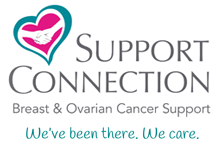Why Open Discussions?
Why do we have Open Discussions on specific topics related to a cancer diagnosis? It’s because, as any of us who’ve been diagnosed knows and understands, there is often “fallout” from a diagnosis and treatment.
We all feel like deer in a headlight after hearing the words “you have cancer.” We do everything we can to learn more, by researching what the doctors said, at least all we could hear and absorb. We ask intelligent questions, seek second opinions.
But often we discover later there are things we wish we’d asked but didn’t know. Or, sometimes new issues and questions crop up unexpectedly.
Open Discussions are a place where we can get together and discuss these things, to learn from one another and feel less alone.
What do Open Discussions address?
In our Open Discussions, we often talk about things such as side effects like lymphedema, chemo brain, intimacy issues, fertility issues, joint pain, peripheral neuropathy. There are so many reasons that cancer survivors can experience this type of “fallout”: surgery, certain types of chemo, a disconnect in communication with the medical community, changes in the world of health care. The fallout often leads to real challenges: Younger woman can no longer have children. Lymphedema from lymph node removal can in some cases be debilitating. The same is true for peripheral neuropathy, a side effect of certain chemotherapies. Loss of memory from “chemo brain” becomes frustrating. Changes in our bodies from treatments and surgeries can impact libido and affect intimacy.
Open Discussions can also address specific situations. For example, we have discussions for men whose spouse or partner has gone through cancer, and for women who were diagnosed at a young age.
Of course, none of these things happen to everyone. But they do happen. So, we invite people who are experiencing specific issues to take part in a discussion to share information, resources, and coping strategies.
How do Open Discussions work?
Our Open Discussions are not educational forums with presentations by doctors or other health care professionals. They’re a place where people come together to discuss a particular challenge they have in common as a result of their cancer journey.
Participants share their concerns and experiences, taking comfort from the fact that they’re in the company of others who understand because they’ve been through it too. A peer facilitator is always there to lead the conversation.
By talking together we can support one another, learn from one another, and become our own best advocates.
How can I learn more?
To learn about any upcoming Open Discussions currently on our calendar, and to learn how to register, visit our Open Discussions page.
Or call and ask to speak with one of our Peer Counselors: 914-962-6402 or toll-free: 800-532-4290.
You can also send an email with with any questions, or with a suggestion for a discussion topic. Use this form to email our Peer Counselors
